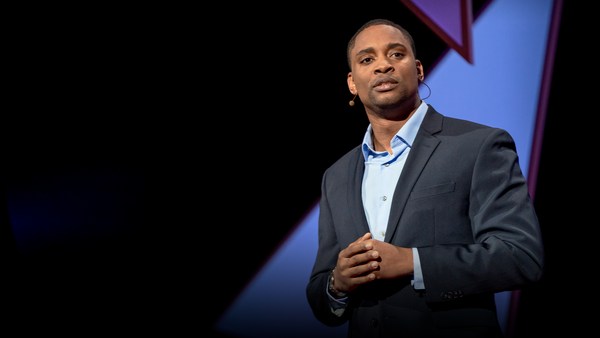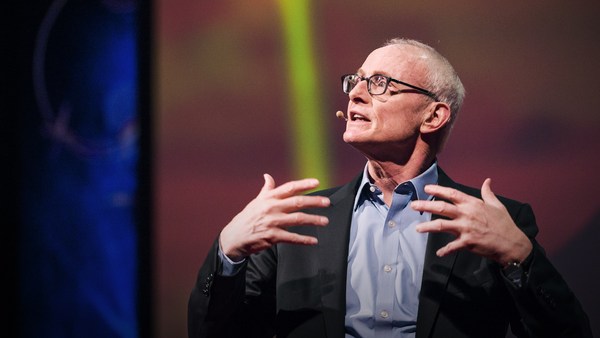I have two teenage boys. One is 16 and one is 13. And like most families with multiple children, they are completely different. Both are wonderful and have many great qualities about them, however what really sets them apart is that my older son knows when to bite his tongue and my young son, not so much. You see, my younger son really struggles with having a filter, especially when it comes to speaking up and saying exactly what's on his mind.
About three years ago, a bunch of kids and adults in the neighborhood had come together to work through a big conflict. The kids were basically at war with each other. There were lots of tears, screaming, shouting, and I felt like we would never get to a resolution. When we were in the height of everything, my younger son, in the most calm, clear, matter-of-fact tone, turned to another child and said, "You know you were lying. You know that's not what happened. It's time to come clean and tell everyone the truth." The entire group stopped. They could not argue with him; they could not dispute him. His manner of delivery was so real and so honest. And I remember feeling really proud of him in that moment, because he had the courage and the confidence to speak up.
And that moment started getting me thinking. Why as a society have we created this fear to speak up, especially in a group of our peers or our coworkers? Wouldn't it be amazing if you could tell your boss that that project deadline she put out there is completely unreasonable? And what about being able to tell a coworker that they're being really difficult?
Now I know some of you are lucky enough to be able to work in places that value that kind of openness and honesty, however in my work as a leadership and organizational coach, I have to tell you that is not the norm. I've observed hundreds of scenarios and coached multiple people through situations where they are afraid to speak up, they're afraid to have those honest conversations out in the open, especially when they're needed the most. And you probably know what I'm talking about: you're in meeting, somebody pitches an idea, not everyone agrees, but no one says a word. And then about two seconds later, somebody picks up their cell phone and begins sending a text message to somebody else in the same meeting, telling them how stupid the idea is. And let's not forget the proverbial watercooler conversations. As soon as the meeting over, they rush over to a peer or a group of coworkers probably near a watercooler and offer all kinds of opinions about that meeting. But the problem is that it's after the meeting instead of during it.
So I'm on a mission. I want to stop the passive-aggressive texting and start bringing the watercooler conversations front and center. I believe when we can start to have these types of conversations, it will change the dynamics of how we all work together. We'll become more productive, less fearful and even happier at work.
Now, I often get asked: how do you muster up the courage to have those kinds of conversations, especially if you're not in a leadership position, or you work in a place that does not value that kind of openness and honesty? And for me, it comes down to a combination of four things: confidence, intent, delivery and always striving to seek a solution. So let me break those down for you. The first one is confidence. And I know -- easier said than done. However, I have a little trick that I hope will help you. The next time you're in a meeting and you want to speak up but you're feeling a little nervous or anxious, I would recommend you use what I call "the Captain Obvious strategy." It goes something like this: "Call me Captain Obvious, but isn't that solution not really going to address our problem?" By saying "Captain Obvious" out loud, it basically adds a little humor to the moment, but it also does a check of the room to see if anybody else is hearing, seeing or feeling the same things. And by having that confidence to speak up, you then open the door to allow others to have that same confidence. Now you don't always have to say Captain Obvious out loud. You can say it quietly in your head right before you speak up, kind of like you're mentally pumping yourself up before a big game. Regardless of how you use this strategy, confidence is the first step in all of this.
So let's move on to intent. Intent is about having a purpose and a reason to speak up. Intent is about knowing and understanding that by me speaking up, I either want to work through a problem or address a situation. For example, when someone is being really difficult in a meeting and I call them out on it, my intent is not to embarrass them. My intent is to make them aware that their behavior is putting a strain on the group. For my son, his intent was that the truth be heard. He wasn't just calling the other child a liar out of spite. Well ... at least I don't think he was. He was only 10 at the time, so I could be wrong. However, his underlying intent was that the truth be heard so that we'd get to a resolution. I feel when you go in with a positive intent, it's much more likely that your message will be received with an open mind.
Alright, let's move onto the third step, which is delivery. Delivery is about how you frame the actual message. Delivery needs to be factual, real -- and when I say real, I mean no sugarcoating what you're trying to say -- and it must always take the receiver's feelings into account. Let me give an example. Let's say you're working on a team and you know there's an individual who just isn't pulling their weight. Everyone knows it because you talk about this individual almost every day at the watercooler, but nobody wants to bring it up in the larger group setting. Then after several weeks of grumbling and some serious loss in productivity, you finally decide we need to have a conversation as a larger group.
So let me show you how the delivery should look. "Hey team, we have not met any of our commitments over the past several weeks." Simple, direct, no sugarcoating situation. And then you would continue: "Hey team member, we've looked at the data and we've realized that you have not been able to meet your commitments over the past three sprints." Factual. We have the data to show these are our concerns and why we're having this conversation. And now this is where we really want to take the receiver's feelings into account. "We're concerned that you do not have everything that you need and that we need to do something better to support you." Empathetic, caring, and in my experience, it almost always works. When we're able to have these types of conversations out in the open, it creates the environment where the team feels more confident to speak up. And in my past experience, some of these teams have become some of the highest-performing teams in the company, just by being able to have those types of conversations. Imagine that.
Now let's move on to the last piece of this, which is always entering a conversation with a mindset of wanting to seek a solution. And for me, that's the piece that I see that is missing the most. How many of you have been in a meeting and you work through a problem, but you realize you've spent the entire meeting hashing through the problem, and then you get to end of it and you need to schedule another meeting just to work through solutions? Yep, probably happens more than we'd like to admit.
Let's say you're on a project, and you know it's a problem, you've been slogging through it with no end in sight. So you call somebody into the room that's a little bit closer to the work, hoping that you can understand what the problems really are and work through a solution. But they come into the room and this is what they say: "This project is a disaster. We do not have the people, the skills, the resources or the technology to get this done, and we're going to need to spend a million more dollars before we see it to the end." And then they leave the room. So just as an FYI, that's what I call a "mic-drop moment," and those moments are not productive.
Now, I know that was an extreme example, however mic-drop moments like that happen every day at work. That's why it's so important that we come into a conversation with a mindset of wanting to seek a solution. Even better, if you actually bring possible solutions to the conversation, that then creates the space to start to work through options. So if I could rewind that mic-drop moment, I would hope and recommend the conversation go a little bit more like this: "We've come to realize we don't have the people, skills, resources or technology in-house. That's why we're struggling so much on this project. I think if we were to use this external vendor, who we know has this experience and has done this type of work before, we're going to be able to complete it and meet our goals." There. Possible solutions create possible options.
Now I know some of you may be saying this is a great concept in theory but will never happen or be accepted where I work. I would challenge you to change your thinking, because there is power in speaking up. Nine times out of 10, if I'm thinking it, I bet at least one other person in the room is having that same thought. And the beauty is that once it's said, that's when the real conversations start to happen. Look at my son. I believe he was able to change and entire group dynamic just because he had the courage and the confidence to speak up. The best organizations are full of people at all levels that have that same courage to tackle the tough topics. And by being open and honest, not only are we helping ourselves but also our organizations to have these conversations. And those are the ones that are needed the most. Call me Captain Obvious, but isn't that the kind of place that you want work in?
Thank you.





